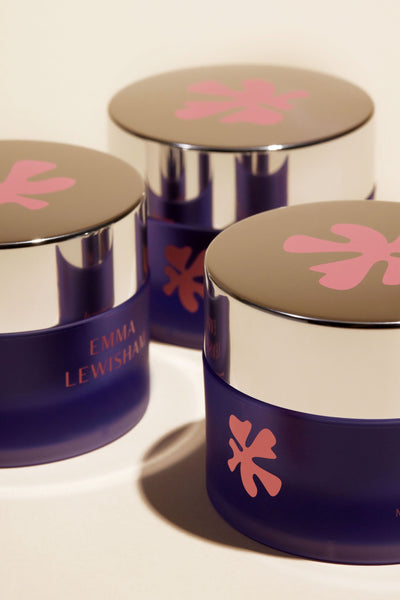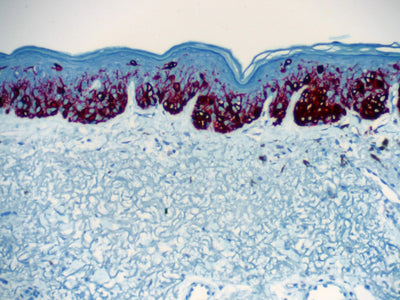- UVA rays (remember “A” for Ageing) penetrate deep into the skin and contribute to the breakdown of the structural protein collagen. This causes a lack of firmness and elasticity
- UBA rays (remember “B” for Burning) don’t penetrate as deep as UVA rays. These are the rays that cause burning of the skin (and skin cancer). They also trigger an enzyme in your skin called tyrosinase to produce melanin, which you see on your skin as hyperpigmentation (age spots or sun spots)
We all know by now how important sunscreen is for protecting against skin cancer, but it can also prevent the above skin ageing.
In fact, a study in the journal Dermatologic Surgery shows that sunscreen can not only protect your skin from aging, but also reverse the common signs of photoageing such as wrinkles and hyperpigmentation. With a daily application of a moisturiser with SPF 30, the study’s participants saw a 52% improvement in hyperpigmentation (sun spots) and 40% in skin texture after a year of use.
Sunscreen is the real MVP of your beauty regime. If you choose the right SPF products and wear them daily, they're your best anti-ageing protection.
To prevent skin ageing, firstly you should be wearing sunscreen 365 days of year, rain or shine. Because UV light from the sun is present every day and can penetrate clouds or glass.
Secondly, include a broad spectrum sunscreen into your daily routine and make it an SPF 30 or higher. “Broad spectrum” means it will protect your skin from both UVA and UVB rays. SPF 30 is the minimum SPF recommended by skin experts to prevent skin aging.
Thirdly, choose a natural sunscreen over a chemical/synthetic one. Synthetic sunscreens will have active ingredients with names such as avobenzone, oxybenzone, octocrylene, and homosalate. These chemicals work by absorbing UV rays and over time, break down and begin to generate their own ageing free radicals.
Emma Lewisham’s sunscreens are all 100% natural with fully traceable ingredients. They have zinc oxide as their active, which is the best for shielding skin from both UVB and UVA rays. When we say “natural”, we mean it. We don’t just mean the active is natural, we mean the entire product and every ingredient. There are no synthetic or chemical ingredients or preservatives.
“The truth is that the SPF in your makeup is not enough to keep your complexion safe from the sun over Summer. Skin specialists recommend an SPF 30 or higher, and most moisturisers and foundations are only SPF 15. The other issue is foundations usually contain chemical sunscreens which can degrade and generate free radicals in the skin” - Emma Lewisham
What if you already have wrinkles and dark spots from sun exposure? It’s never too late to start protecting your skin. People who start using a broad spectrum sunscreen can still see a noticeable reduction in every visible sign of aging.
Top tips for daily sunscreen wear:
- Sunscreen should be one of the last skincare products applied during your morning routine. Give it a few minutes to absorb before you apply makeup.
- Wear a sunscreen or moisturiser with SPF that is labelled “broad spectrum”, which will mean it protects your skin from both UVA and UVB rays.
- Only purchase sunscreen rated SPF 30 or greater. This is recommended by most dermatologists and skin specialists worldwide to prevent skin aging.
- Look for an SPF which also provides hydration and other anti-ageing ingredients. Like our Skin Shield Daily Face day cream.
- And of course, top it off with a hat or avoid being outside during the hottest parts of the day.
Sources:
Canadian Dermatology Association. (n.d.). Photoaging. Retrieved 24 November 2019.
M Randhawa, S Wang, J.J Leyden, G Cula, A Pagnoni, M Southall. (2016). Daily Use of a Facial Broad Spectrum Sunscreen Over One-Year Significantly Improves Clinical Evaluation of Photoaging. Dermatologic Surgery: December 2016 - Volume 42 - Issue 12 - p 1354–1361.









